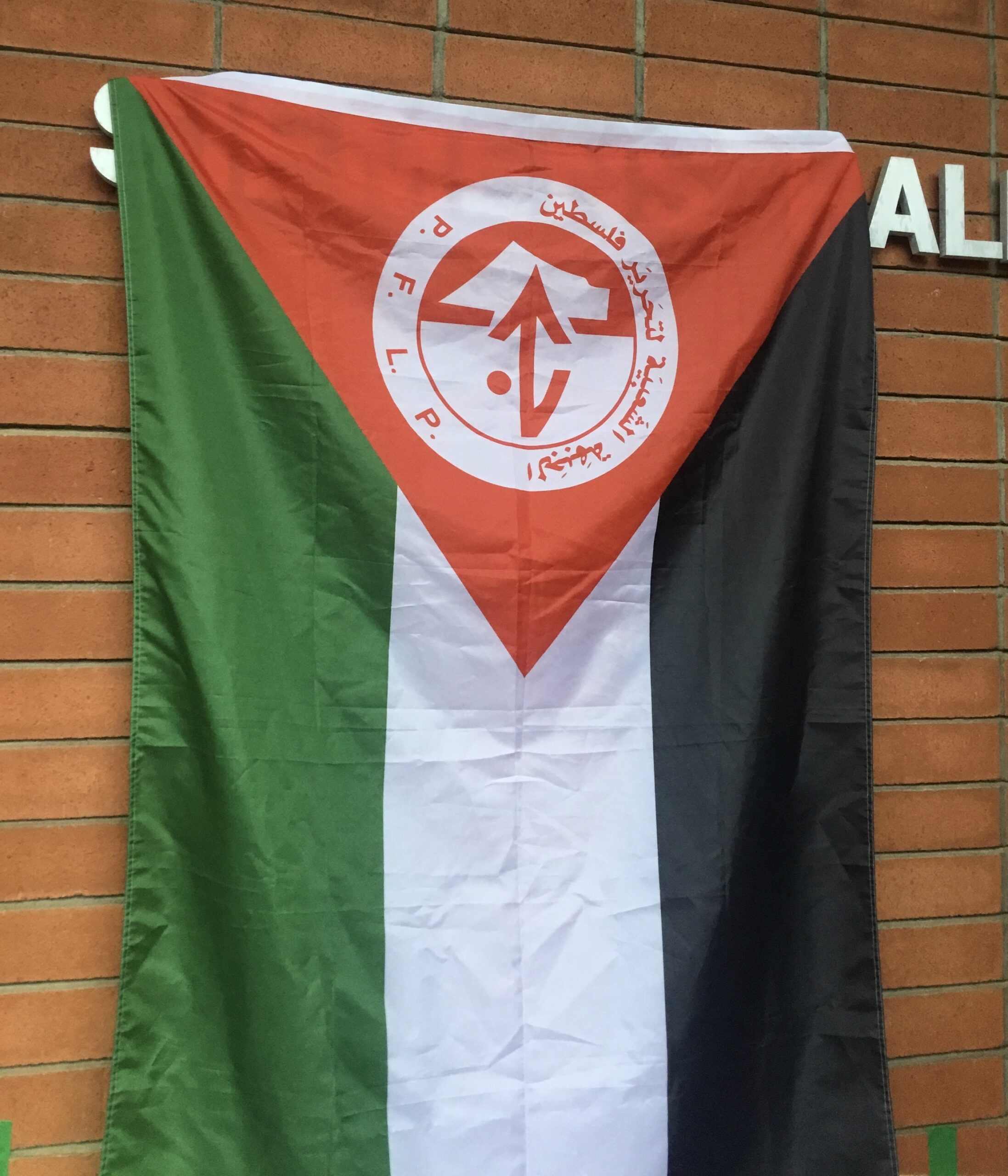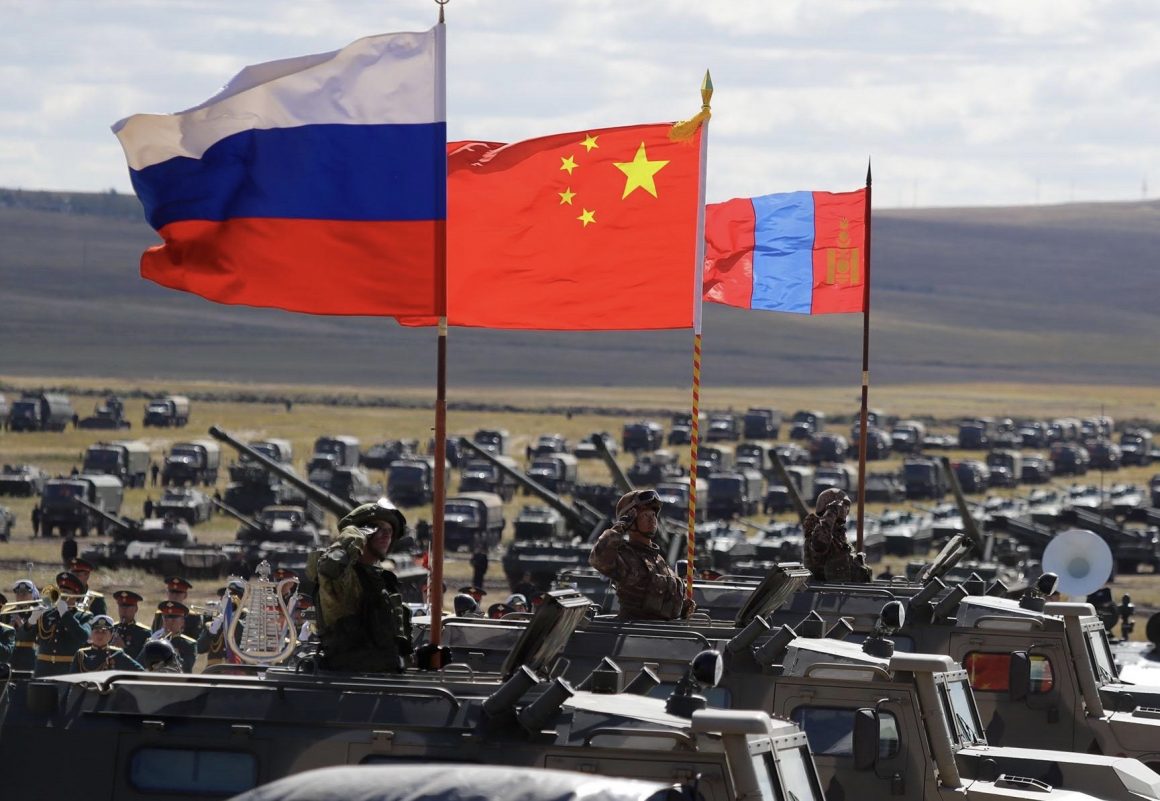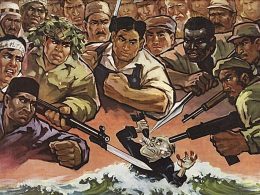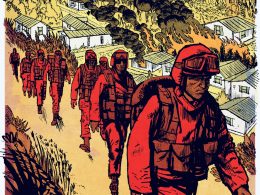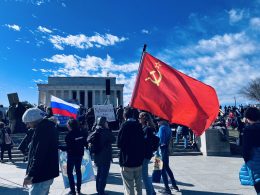With the failure of the sanctions to stop Russia’s economy from growing; the failure of U.S. diplomats to convince the Global South to join Washington’s war against Russia; the failure of Ukraine’s summer counteroffensive to sufficiently undo Russia’s gains; the failure of June’s Russian PMC betrayal to destabilize the country’s government; the failure to stop the BRI’s progress, or de-dollarization, from being accelerated by the Ukraine conflict; the failure of Zelensky to get approval for joining NATO until Ukraine wins (which will be never); and the failure of the G7 countries to prevent BRICS from economically surpassing them; U.S. imperialism’s myriad of weaknesses have been revealed.
We now have ample evidence which proves correct the strategic calculus Russia used when it started on the special military operation last February. This calculus being that American influence has diminished enough for a country like Russia to be able to defy the hegemon, then gain more from the confrontation than it loses.
This has shown that if a country like Iran or China were to expand upon their existing measures for guarding the globe against U.S. imperialism’s occupations, coup attempts, and destabilization efforts, this could bring a net positive outcome. As long as these players don’t act recklessly, and do something that would start a third world war, they’ll be able to further shrink the hegemon’s reach without too severe a cost. At the moment, three fronts where such an opportunity has appeared are Serbia, which NATO seeks to bring war back to; Syria; which continues to have its oil stolen by the U.S. military; and South Sudan, where AFRICOM is trying to keep its influence.
What all of these places have in common is humanitarian crises, ones that the imperialists are exacerbating and seek to exploit. And China has the capacity to become militarily involved in all three, saving those who are threatened while showing Washington’s growing limits on what it can stop others from doing.
These armed forces deployments would all be less high-risk than the one Russia has carried out in Ukraine, because Russia’s action has created a perceived mandate among the nearby countries for backing Washington in retaliating. It would be harder for the hegemon to make the argument that everyone needs to unite against China if China were to take action in these three countries; and Washington’s argument for countering Russia has itself been proven too weak to convince most of the globe. This is why the hegemon has seemingly abandoned its previous plans for instigating a parallel proxy war in Taiwan: if it can’t win a proxy war against Russia, it definitely can’t win a proxy war against China, which economically is even stronger than Russia and militarily is at least as prepared.
This applies not just to Taiwan, but to every other location where the PRC may get a compelling reason to become militarily involved. There’s no way China is going to launch any aggressive wars, however much the imperialist intelligentsia constructs myths about a “Chinese imperialism.” So whatever China does, it’s going to be in response to an actual mandate to do that thing. The hegemon can only expect to get a narrative precedent for military action against the PRC if it orchestrates false flags. And such false flags can only be expected to fool the people where imperialism’s informational control is strongest.
Outside the imperialist countries, the empire’s psyops can be expected to fail. Even in some of these countries themselves, like Germany, the psyops are already in the process of failing; the German people have become widely aware that Biden was the Nord Stream bomber, and they’re upset at their government for appeasing Washington. Most of the international community is absolutely not going to back a war against China, France and the EU are showing hesitation to back such a war, and many more U.S. citizens could become opposed to such a war should the domestic anti-imperialist movement continue to rise.
It’s the latter factor, the one pertaining to how successful the internal resistance to the empire is, which we in the imperial center truly need to concern ourselves with. Would it be a sound idea for China to deploy its armed forces in all the places where the PRC can safeguard against imperialism? Perhaps, but we can’t act like the success of the anti-imperialist movement depends on how its foremost target (China) responds to being attacked with hybrid warfare. Global observers, especially the ones in the core, need to take whatever opportunities they themselves have for combating imperial power. For those within U.S. borders, this opportunity is a special one, because we’re the population that the empire needs the most to accept its narratives.
We have a kind of leverage that no other population does: the leverage in which we can take away the social base imperialism depends on to keep its global war operations tenable. Most Americans don’t have a primary material interest in maintaining neo-colonial extraction, because most Americans are working class. A majority of them only at present believe most of the psyops because these psyops are the sole account of global events they’ve so far been exposed to. We’ve been seeing it demonstrated that when enough Americans encounter an anti-imperialist perspective, a majority of them come to unlearn the indoctrination.
This is what we’ve seen this month, when a survey came out showing a little over half the U.S. public now opposes more aid to Ukraine. And the efforts by the recently invigorated anti-NATO movement to raise awareness of the war machine’s evils have little doubt been the factor that’s brought this proportion over the halfway mark. If we’ve been able to do this harm towards the Ukraine psyop, we can do the same to the psyops that are being prepared to replace it.
These emerging psyops are the narrative that BRICS, and its project to challenge the dollar, are doomed to fail (which is disproven by the accelerating process of de-dollarization); the narrative that China is seeking to use BRICS to dominate the globe (which is disproven by how all countries have an equal voice in BRICS, as opposed to G7 where all members are subordinate to the USA); along with the narratives about smaller targets, like Serbia and Niger. If we want to see Russia’s operation start off a wave of anti-imperialist actions by the other semi-peripheral countries, we have to fight the next stages of the information war. This can render our government less able to retaliate against these countries. Already, we’re seeing peripheral countries like Niger, Mali, and Burkina Faso assert their national interests, partly due to inspiration that Russia’s action has created among their peoples. We in the core need to nurture this global revolutionary trend.
————————————————————————
If you appreciate my work, I hope you become a one-time or regular donor to my Patreon account. Like most of us, I’m feeling the economic pressures amid late-stage capitalism, and I need money to keep fighting for a new system that works for all of us. Go to my Patreon here.
To keep this platform effective amid the censorship against dissenting voices, join my Telegram channel.

